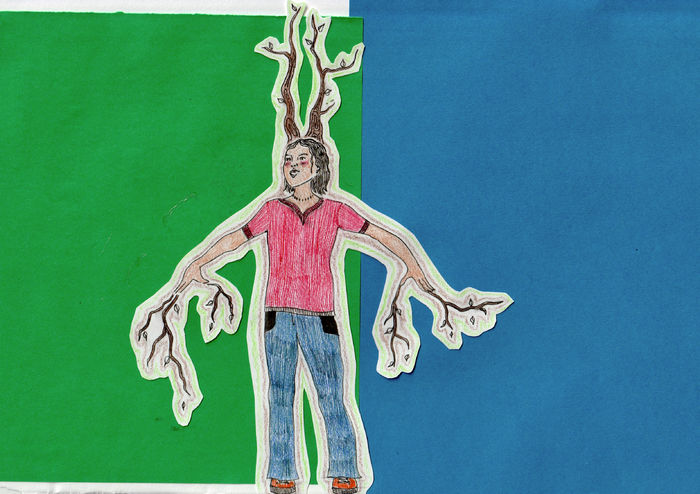In Celebration of the Monologue
Theatre Editor Stanley Lawson reflects on why the monologue has a particular resonance for the moment we live in
Monologue is the perfect form for the last year. With theatres shuttered and rehearsals banished to zoom, the self-contained nature of the monologue has made it the easiest outlet for pent up creative energies over the long cycles of lockdowns and easings. The genre has a long history – theatrical dialogue in the ‘western’ world emerged from the archaic Greek practice of a monologue spoken with a chorus. It has an endurance which it owes in large part to its versatility – adapting and morphing into related theatrical phenomena like the Renaissance soliloquy and experiencing a resurgence of popularity in recent decades in part thanks the success of writers who utilise them.
“The solitude of this voice makes monologue a perfect fit for our times of lockdown and self-isolation”
The most famous of these is of course Alan Bennett – his Talking Heads is the most culturally recognisably set of monologues written in modern Britain, first shown on television in the late 80s and later staged in countless productions. I remember seeing them in Leeds several years ago aged 14 or so and being absolutely entranced by the story of the individual, watching their confession being performed before me. I had gone by myself, and on the bus back home I day-dreamed, allowing myself to pretend that I too was monologuing my unfiltered thoughts.
The thrill that learning a character’s innermost thoughts gives an audience has been well understood for some time; Shakespeare and Marlowe both used monologue to great effect. There is not an objective sequence of events, just a series of interpretations by one voice. The solitude of this voice makes monologue a perfect fit for our times of lockdown and self-isolation for reasons beyond the practical. Of course, monologue is more easily transferred into a digital format and easily accessible for writers and actors – monologues are generally written alone, they are more easily directed over Zoom (other social digital platforms are available) than theatre involving more than one performer and recorded by the performer themselves. But there is more to it than that. During these successive lockdowns, many of us are left alone with our thoughts for protracted lengths of time, forced to spend more time with ourselves than ever before. Even for those for whom lockdown has not involved as extended periods of isolation as others, the experiential world has narrowed to a much more confined set of spaces and people, leaving the individual less space to evade self-reflection.
“The best monologues then appear to be unfiltered thoughts but are in fact the result of a careful process of reflection”
In this context, the monologue seems a natural form for exploration. For a writer, monologue offers a unique opportunity to control narrative through one exclusive and totalising voice, which forms the boundaries of the knowable world within the piece. This voice can be viscerally personal, or opaque – more than in any other form the writer, director or actor can control how a character exists in the perception of the viewer; without the complication of interaction with other voices, practitioners have a totalising power over the reception of their character’s voice. This tunnel vision offers a myriad of opportunities for practitioners to blur the lines between reality and reported reality and explore the voices of others as refracted through one mind, left alone to stew. The best monologues then appear to be unfiltered thoughts but are in fact the result of a careful process of reflection in which the writer becomes intimately acquainted with the character. Into the monologue goes all the complexity of a character, bound under the surface of the text which the actor must decode and interpret before performing to the audience, who in turn must enter into the character’s world.
As we reach the easing part of our cycle of lockdowns that has developed over the last year, it is difficult to have hope for the return of staged live theatre given how badly many theatres were burned by the instituting of the Christmas lockdown. Despite this, the opportunity for the return of live monologues – especially student written ones – is cause for celebration. Monologue is not just a solitary project; it feeds on an audience. With live audiences returning to theatres, there is a great opportunity to reconnect the solitary monologue with its group reception.
 News / Downing investigates ‘mysterious’ underground burial vault 29 December 2025
News / Downing investigates ‘mysterious’ underground burial vault 29 December 2025 News / Unions protest handling of redundancies at Epidemiology Unit30 December 2025
News / Unions protest handling of redundancies at Epidemiology Unit30 December 2025 Lifestyle / Ask Auntie Alice29 December 2025
Lifestyle / Ask Auntie Alice29 December 2025 Features / ‘Treated like we’re incompetent’: ents officers on college micromanagement30 December 2025
Features / ‘Treated like we’re incompetent’: ents officers on college micromanagement30 December 2025 Science / Astronomical events to look out for over the break29 December 2025
Science / Astronomical events to look out for over the break29 December 2025










